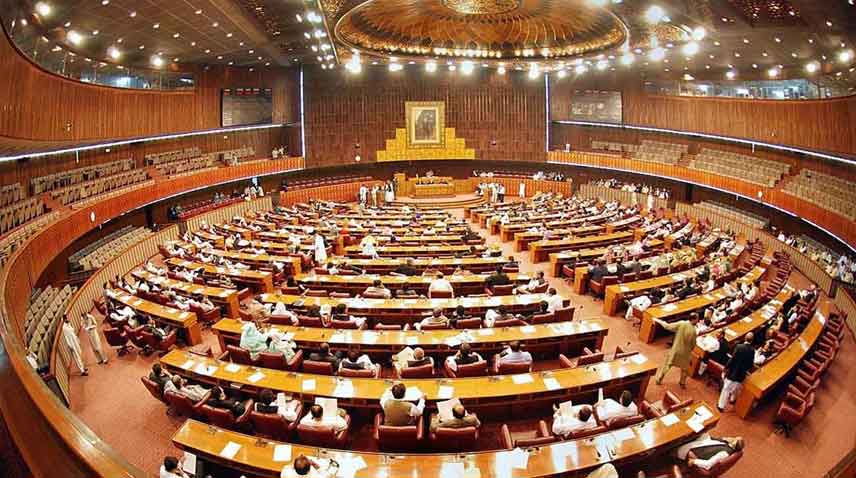
However, elections were postponed in Khyber Pakhtunkhwa over the dispute regarding swearing-in opposition members elected to reserved seats.
Out of the 19 seats up for grab in Tuesday’s elections, the PML-N grabbed six seats, the PPP 11 while the MQM-P won one seat, as per unofficial results.
The 96-member House now includes 19 seats of PML-N, 24 of PPP while the PTI has 20 members in the Senate.
On a technocrat seat from Islamabad, Foreign Minister Ishaq Dar got 222 votes against Sunni Ittehad Council’s (SIC) Raja Ansar Mehmood who could bag only 81 votes. PPP’s Rana Mehmoodul Hassan got 224 votes to win the general seat in Islamabad while PTI’s Farzand Hussain Shah garnered 79 votes.
In Punjab, elections were held on two women and technocrats seats each and one minority seat while all seven candidates vying for the general seats in Punjab were elected unopposed at the end of March.
The two seats were grabbed by Finance Minister Muhammad Aurangzeb and Petroleum Minister Musadiq Malik as they got 128 and 121 votes respectively.
Anusha Rehman and Bushra Anjum of PML-N won two seats reserved for women after getting 125 and 123 votes respectively. PML-N’s Khalil Tahir Sindhu was successful on a minority seat.
In Sindh, PPP secured 10 out of 12 seats up for grabs while the MQM-P and an independent candidate took the reaming seats each.
Polling in the NA and the provincial assemblies in Sindh and Punjab began at 9am and concluded at 4pm.
On March 11, the Senate became dysfunctional following the retirement of 52 lawmakers.
Meanwhile, polling in KP was postponed by the Election Commission of Pakistan (ECP) “on account of delay of oaths of reserved seats”.
KP election commissioner Shamshad Khan reached the assembly and sought a list of the sworn-in MPAs from the assembly staff. At the same time, the opposition petitioned the ECP to postpone the Senate elections there.
Afterwards, the ECP issued a notification of the poll postponement. It said, “The commission is of the considered view that the standards of honesty, justness and fairness of election as provided in Article 218(3) of the Constitution cannot be fulfilled due to non-administration of oath to elected members and which amounts to disenfranchisement of lawful voters and denial of level playing field to the voters.”
Meanwhile, President Asif Ali Zardari, on Prime Minister Shehbaz Sharif’s advice, has appointed Foreign Minister Ishaq Dar as the presiding officer for the first session of Senate.
“The first meeting of the Senate for election of the chairman shall be presided over by the outgoing chairman or, in his absence, by a person nominated by the president, for the purpose, hereinafter in this rule and in rule 10 referred to as the presiding officer; provided that no person shall preside over the meeting for the election in which he himself is a candidate,” says the summary.
It nominated Dar to “preside over the first meeting of the new parliamentary year of the Senate for [the] election of chairman and deputy chairman”.
Subsequently, in a notification dated March 30, President Zardari approved PM Shehbaz’s advice.
The Upper House is comprised of 96 lawmakers. However, only 48 seats were up for grabs this year — 12 each from Punjab and Sindh, 11 each from KP and Balochistan and two from Islamabad — as half of the senators are elected at one time, and the other half three years later.
Each senator serves a term of six years, barring resignation, disqualification or other extraordinary circumstances.
The Senate comprises 23 members each from the four federating units and four from Islamabad. The 23 seats allocated to a province comprise 14 general seats, four reserved for women, four for technocrats and one for minority members.
The ECP said that in all, 147 candidates had filed nomination papers for 48 Senate seats, of whom 18 had been elected unopposed. They include seven each against general seats from Punjab and Balochistan and two each against reserved seats for women and technocrats from Balochistan.




